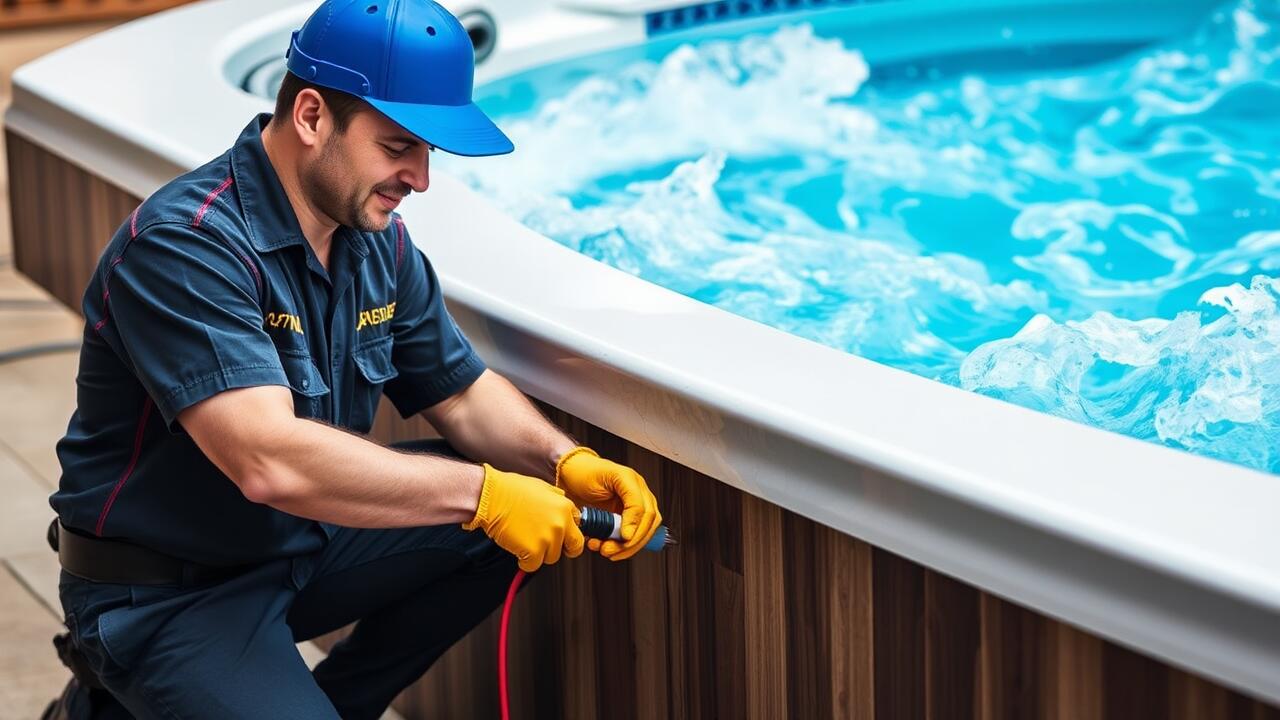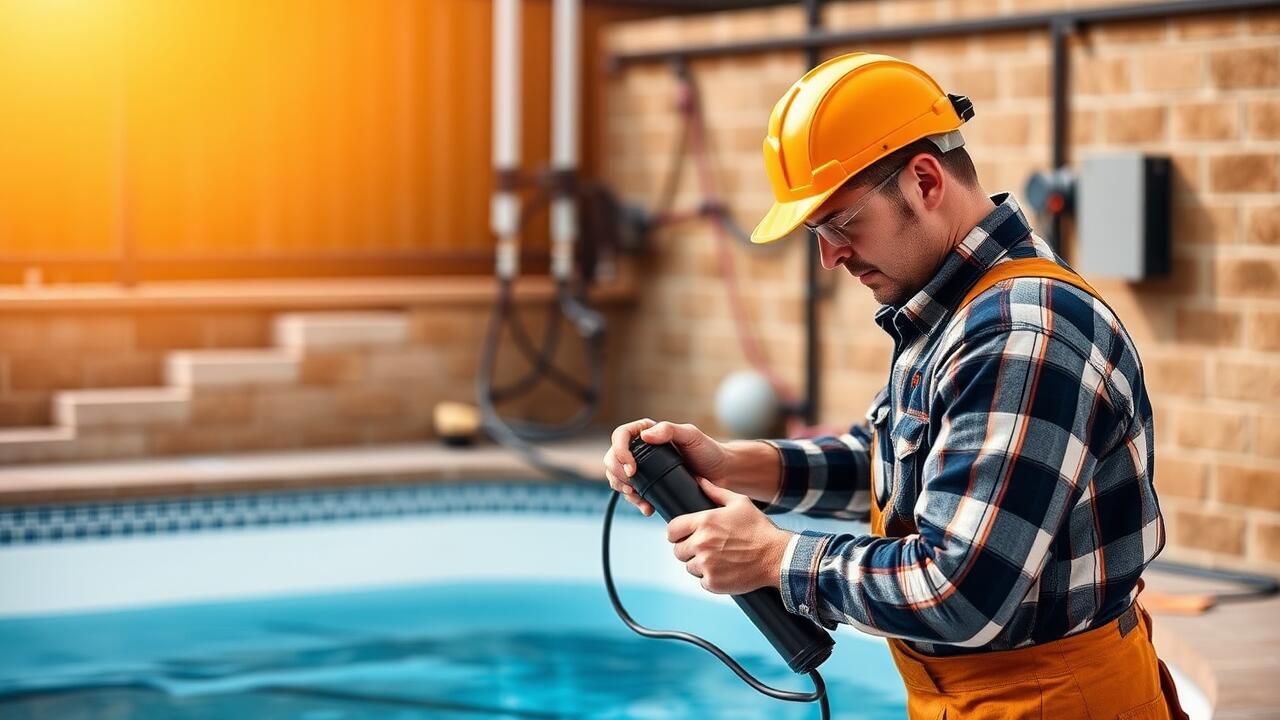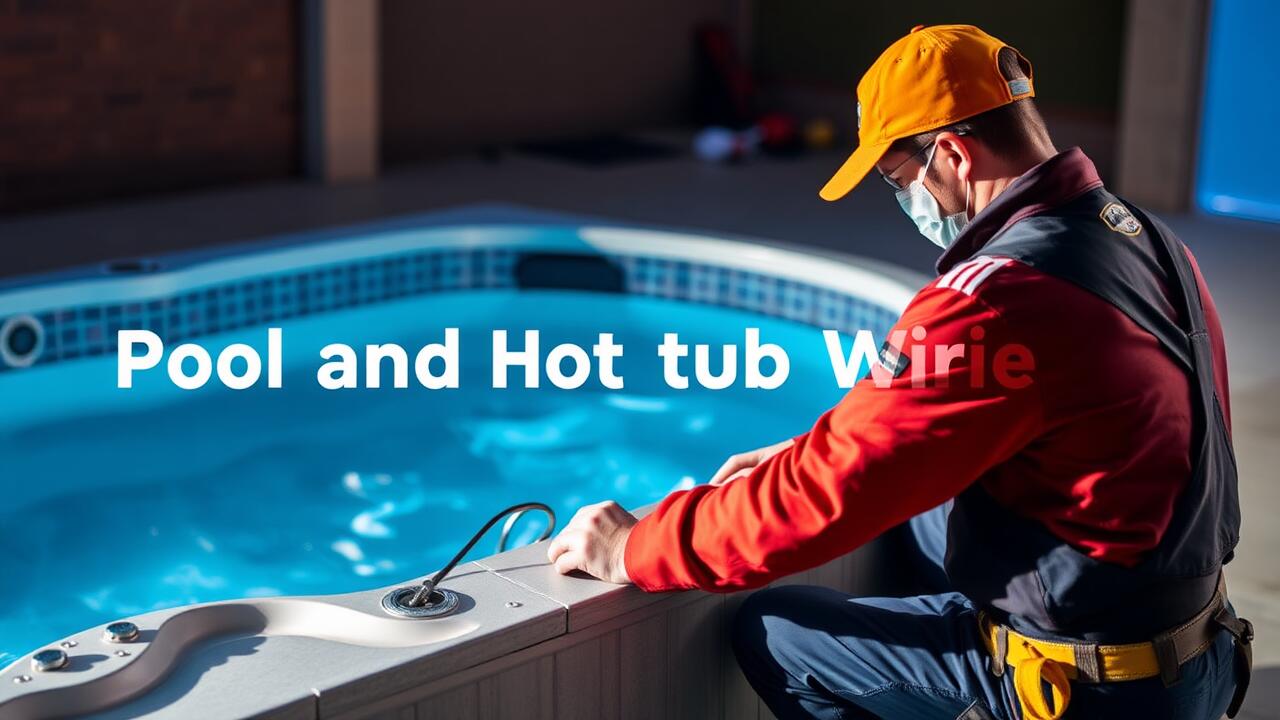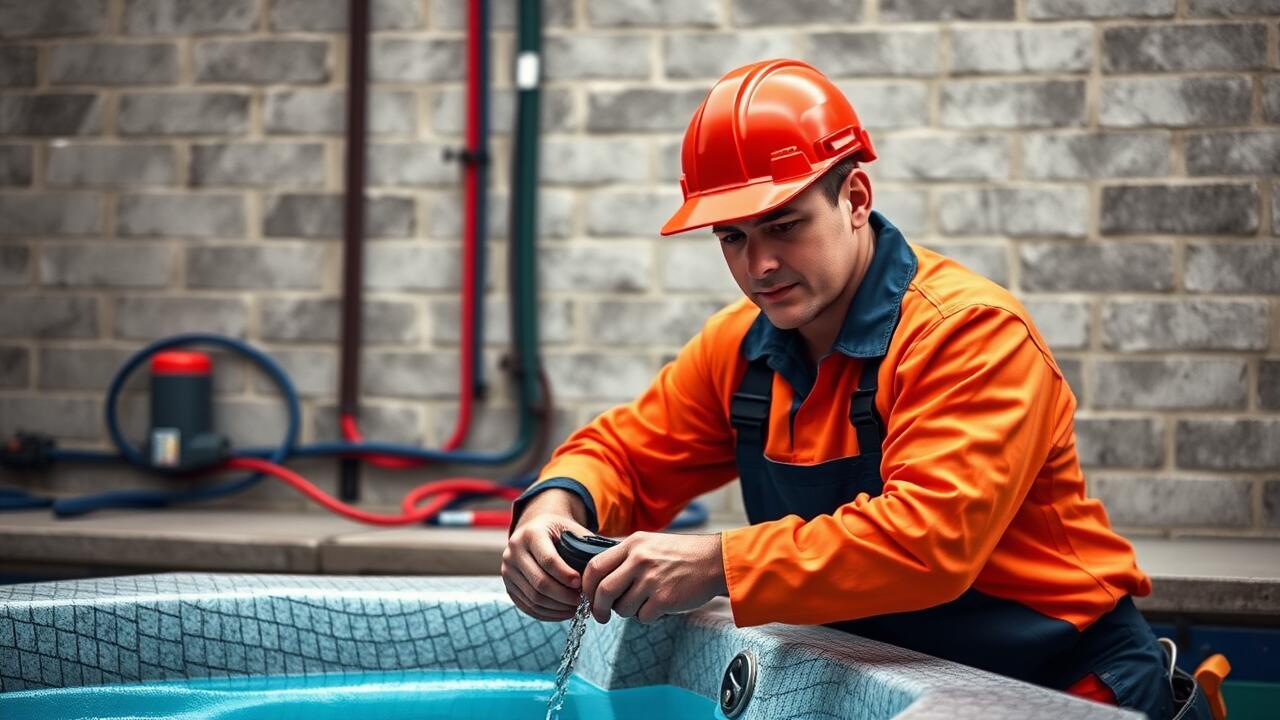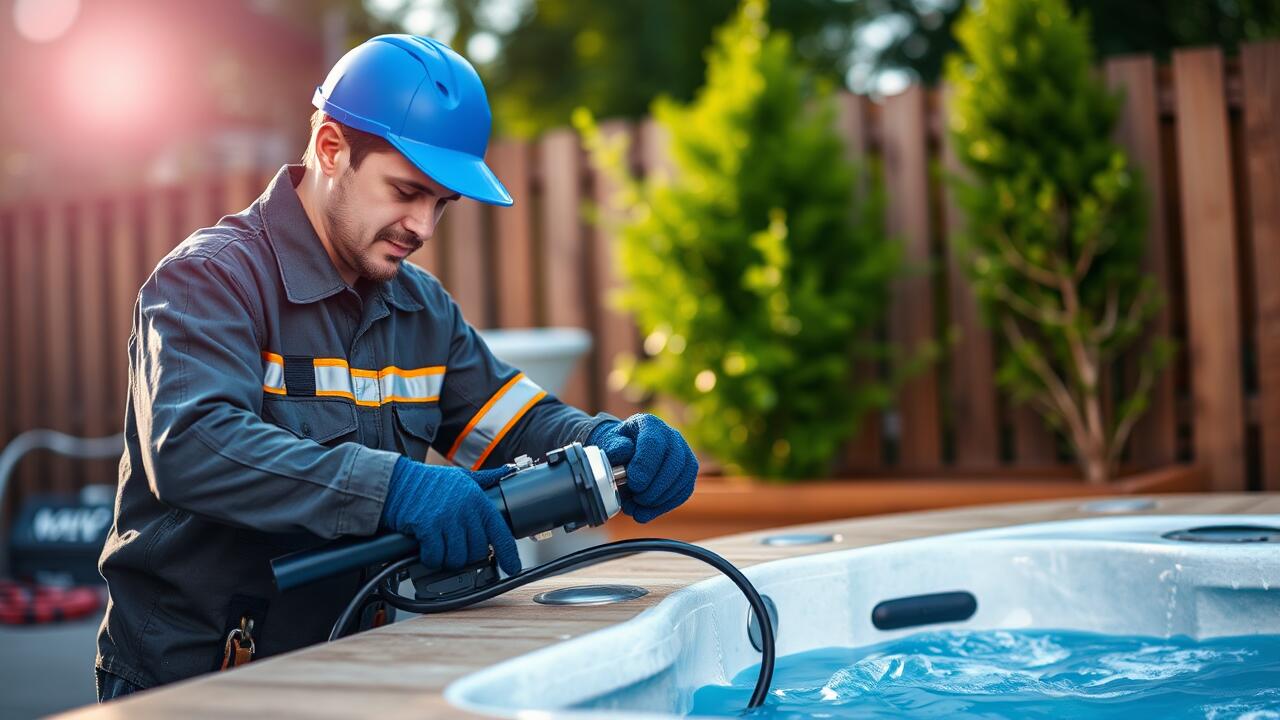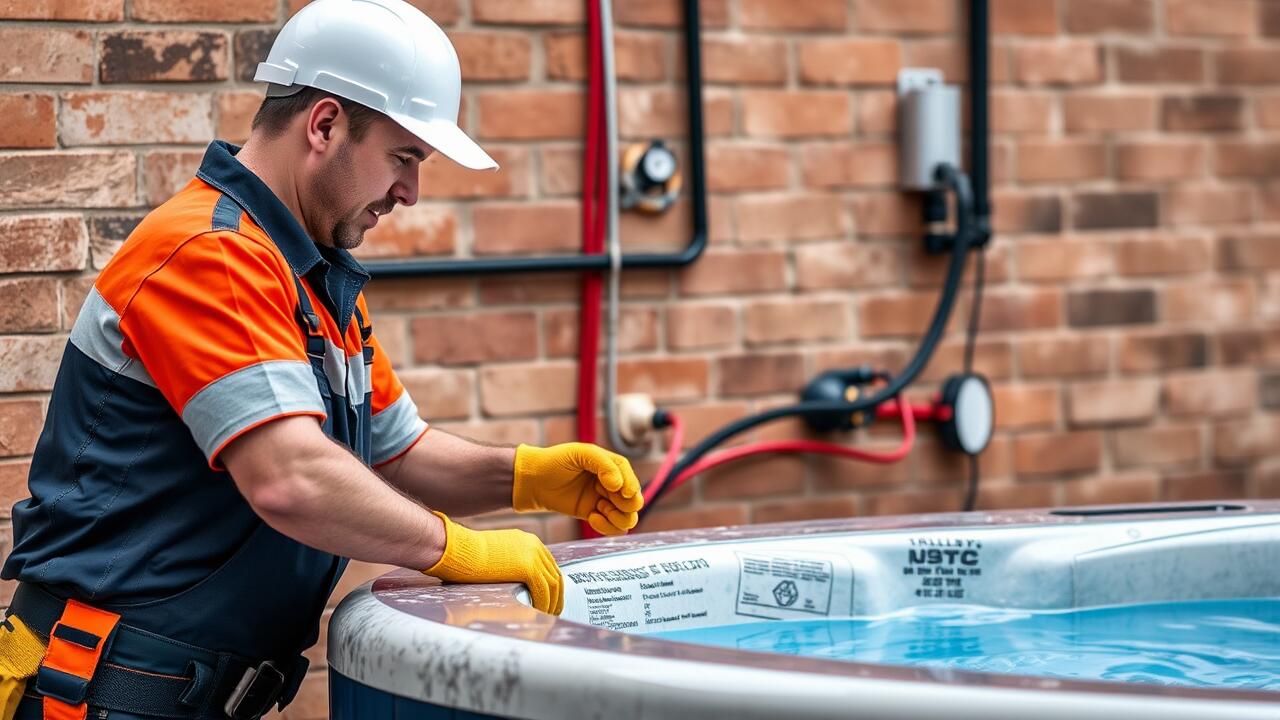
Installing a Dedicated Circuit
Installing a dedicated circuit for your hot tub is a crucial step that ensures optimal performance and safety. A dedicated circuit prevents circuit overloads, which can lead to tripped breakers or even fire hazards. By having a specific electrical line for the hot tub, you also reduce the risk of power fluctuations that can damage the unit or its components. This setup typically requires a specific amperage depending on the hot tub's needs, so consulting the manufacturer's guidelines is important.
Before proceeding with the installation, it's advisable to work with a licensed electrician who understands local requirements. They can help with the installation and ensure the circuit is properly rated for your hot tub's electrical load. To find qualified professionals, you can search for "Pool and Hot Tub Wiring near me." This ensures that you're getting reliable service while also complying with safety regulations in your area.
Importance of a Separate Electrical Line
Using a dedicated circuit for a hot tub is crucial for safety and performance. Hot tubs draw significant power, which can lead to tripped breakers or overloaded circuits if connected to shared electrical lines. A separate electrical line ensures that the hot tub receives the necessary voltage without interference from other appliances, minimizing the risk of electrical issues.
When searching for professionals for your installation needs, consider looking up "Pool and Hot Tub Wiring near me." This can lead you to licensed electricians who specialize in hot tub installations. Engaging experts familiar with local codes and requirements can provide peace of mind, ensuring your hot tub is wired safely and efficiently, meeting all necessary standards.
Local Codes and Regulations
Local codes and regulations play a critical role in the installation of hot tubs in Canada. Each province has its own guidelines that dictate the specific electrical requirements, ensuring safety and compliance with local standards. Homeowners should consult these regulations before beginning any installation process. Failing to adhere to these codes can lead to unsafe situations and potential penalties.
Finding a licensed electrician who is familiar with local electrical codes is essential. When searching for expertise, using terms like "Pool and Hot Tub Wiring near me" can help identify professionals skilled in the nuances of hot tub installations. This search ensures that your installation meets all provincial regulations, providing peace of mind as well as a safely operational hot tub.
Adhering to Provincial Guidelines
When installing a hot tub in Canada, it is essential to adhere to provincial guidelines to ensure safety and compliance. Each province has specific electrical codes that dictate how you should set up your hot tub’s electrical system. This includes guidelines on the type of wiring, grounding requirements, and necessary protective devices. By strictly following these codes, you minimize risks associated with electrical hazards. Doing so not only protects the users but also keeps your installation lawful.
To find the most accurate and up-to-date regulations, homeowners should consult with local authorities or licensed electricians. Searching for "Pool and Hot Tub Wiring near me" can connect you with professionals who are well-versed in local requirements. These experts can provide insights into the specific regulations in your area and assist with ensuring that your hot tub installation meets all safety standards. A thorough understanding of these guidelines is crucial in the planning stages to avoid costly mistakes down the road.
Calculating Electrical Load
Calculating the electrical load for a hot tub is a crucial step in ensuring safe and efficient operation. A hot tub typically requires a dedicated circuit to handle its specific power needs, which vary depending on factors such as size, heater type, and additional features like lighting or jets. To determine the total load, you’ll need to sum the wattage of all components. Most models will have this information listed in their specifications.
Homeowners considering installation should also look for “Pool and Hot Tub Wiring near me” to find licensed electricians experienced in handling hot tub wiring. Consulting with a professional helps in understanding local electrical codes and ensures that the installation meets safety standards. Proper load calculations not only prevent potential electrical hazards but also optimize the performance of your hot tub.
Determining the Right Power Supply
When selecting the right power supply for a hot tub, it's crucial to consider the tub's voltage and amperage requirements. Most hot tubs typically operate on a 240-volt electrical system and require a dedicated circuit to ensure safe and efficient operation. This dedicated circuit minimizes the risk of overloading the home's electrical system, which can lead to potential hazards. Consulting the manufacturer's specifications will provide further insight into the exact electrical needs.
It's wise to enlist the help of a licensed electrician when setting up the electrical supply. They can ensure that all installations meet local safety codes and are properly grounded. Many homeowners searching for reliable services may look for "Pool and Hot Tub Wiring near me" to find experts who understand the specific requirements for hot tub installations. This localized approach often results in better service and adherence to regional regulations, making the process smoother for hot tub owners.
FAQS
What is a dedicated circuit for a hot tub?
A dedicated circuit is a separate electrical line specifically installed to supply power to a single appliance, such as a hot tub, ensuring it has the necessary power without overloading other circuits in your home.
Why is it important to have a separate electrical line for my hot tub?
Having a separate electrical line for your hot tub is crucial to prevent electrical overloads, ensure safety, and comply with local building codes and regulations.
Are there specific electrical codes I need to follow when installing a hot tub in Canada?
Yes, you must adhere to the Canadian Electrical Code and any additional provincial or local regulations that may apply to ensure a safe and compliant installation.
How do I calculate the electrical load for my hot tub?
To calculate the electrical load, you need to determine the hot tub's power requirements, which are typically specified in the owner's manual, and ensure your electrical supply can accommodate this load.
What should I consider when determining the right power supply for my hot tub?
Consider the hot tub's voltage and amperage requirements, the distance from your main electrical panel, and whether you need to upgrade your electrical service to support the additional load.
